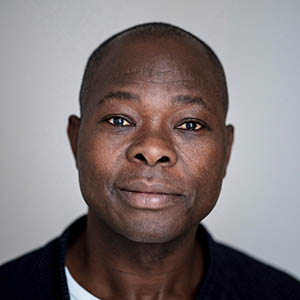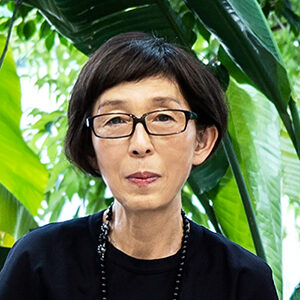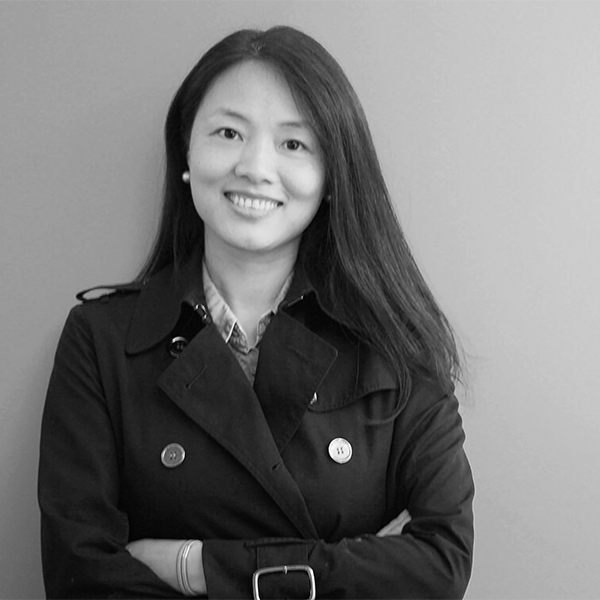I-House boasts a building constructed under the collaboration of three prominent modern Japanese architects, and from its inauguration has been receiving guests and members from the field of architecture. To expand this network, I-House launched a new program in 2016, the tenth anniversary of the extensive renovation of the building, inviting speakers from Japan and abroad to think about contemporary issues through architecture.
Architalk Webinar Series
The Architalk series aims to highlight how architecture both reflects and responds to critical issues around the globe, such as climate change, community building, and the development of an inclusive and barrier free society.
I-House kicked off its 2024 Architalk series with Theaster Gates, an artist, urban designer, and architect who worked to revitalize abandoned buildings and urban neighborhoods in Chicago and elsewhere through architecture and design.
Those who wish to receive detailed information on each session through the I-House e-news are asked to register through the e-news registration form.
Organizer: International House of Japan (IHJ)
Sponsor: Jyukankyo Foundation, MRA Foundation, US-Japan Foundation
PICK UP
[Architalk Series ]
“Bridging the Gap (Climate, Culture, Material & Architecture)”
New Video
This video has Japanese subtitles. Go to Youtube Help for more details.I-House invited world-renowned architect and 2022 recipient of the Pritzker Prize Diébédo Francis Kéré for its Architalk series of lectures. Kéré is a native of Burkina Faso and the first African to win the Pritzker Prize, the most prestigious award in architectural design. He is internationally recognized for his sustainable architectural style that achieves harmony with the climate and natural environment and that makes use of local knowledge and materials. Kazuyo Sejima of SANAA, a Pritzker Prize winner in 2010, will be the special guest commentator.
- Speaker:Francis KÉRÉ(Architect, Founder of Kéré Architecture)
- Guest commentator:Kazuyo SEJIMA(Architect, Founder of SANAA)
- Moderator:Yuko HASEGAWA(Director of Arts and Design at I-House; Director of Kanazawa 21st Century Museum)
- Organized by TheInternational House of Japan
- Sponsored by The Jyukankyo Foundation, MRA Foundation
- Speaker:XU Tiantian (Architect, Founder of DnA)
- Moderator:Toshiaki KAWAII (Architect, Professor of Kyoto Seika University)
- Organized by Kyoto Seika University, TheInternational House of Japan
- Sponsored by The Jyukankyo Foundation, MRA Foundation
- Speaker:XU Tiantian (Architect, Founder of DnA)
- Guest Commentator:Yoshiharu TSUKAMOTO ((Architect, Professor of Tokyo Science University)
- Moderator:Yuko HASEGAWA(Director of Arts and Design at I-House)
- Sponsored by The Jyukankyo Foundation, MRA Foundation

Francis Kéré (Architect, Founder of Kéré Architecture)
is an internationally acclaimed architect known for his community-focused and sustainable approach. He won the Aga Khan Award for Architecture in 2004 for his first project, a primary school in his native Gando, Burkina Faso. In 2022, he became the first African architect to win the Pritzker Architecture Prize. Kéré's work has been exhibited worldwide, and he currently holds professorships at TU München and Yale University. Kéré Architecture works globally. Current projects include the Benin National Parliament and Dakar's Goethe Institut. The internationally acclaimed architect Francis Kéré garnered critical praise from the beginning of his architectural practice when awarded the prestigious Aga Khan Award for Architecture (2004) for his first ever building - a primary school he designed, raised the funds for and realised in collaboration with the residents of his native Gando, Burkina Faso. In 2022, he became the first African architect to receive the Pritzker Architecture Prize. Kéré has gone on to become one of the most distinguished contemporary architects, thanks to his pioneering of a communal approach to design and his commitment to sustainable materials, as well as modes of construction. Inspired by a curiosity for the particularities of any given locality and its social tapestry, he has gathered a diverse, agile team at his Berlin-based Kéré Architecture offices, to take on projects across four continents. Most prominently these include his design for the Benin National Parliament (under construction), the Goethe Institut in Dakar (under construction), the Léo Surgical Clinic & Health Centre (2014), the Lycée Schorge Secondary School (2016), the Serpentine Pavilion (2017) and Xylem (2019), a gathering pavilion for the Tippet Rise Art Center. Underpinning his architectural practice are his past and current teaching engagements at TU München, the Harvard Graduate School of Design, the Accademia di Architettura di Mendrisio, and Yale University as well as his participation in solo and group exhibitions including at the Venice Biennale of Architecture, the Museo ICO in Madrid, the Architekturmuseum in Munich, the MoMA in New York, the Royal Academy in London and the Philadelphia Museum of Art.

Kazuyo Sejima(Architect, Founder of SANNA
was born in 1956 in Ibaraki and studied architecture at Japan Women’s University. In 1987, she opened her own studio, Kazuyo Sejima & Associates, and in 1995, together with Ryue Nishizawa, founded SANAA. She is currently a professor at the Polytechnic University of Milan, a visiting professor at Japan Women’s University and the Osaka University of Arts, an emeritus professor at Yokohama National University, and director of the Tokyo Metropolitan Teien Art Museum. Major works include Saishunkan Seiyaku Women’s Dormitory, House in a Plum Grove, the Inujima Art House Project, the Sumida Hokusai Museum, and Japan Women’s University Mejiro Campus.
[Architalk Series ] featuring Tiantian Xu
“Architecture for Collective Memory”
New Video
This video has Japanese subtitles. Go to Youtube Help for more details.On March 4, a lecture by Xu Tiantian—one of China's leading architects and the 2023 laureate of the Global Award for Sustainable Architecture—was held in Kyoto. The video of this fascinating lecture is now online. Xu discussed her efforts to preserve and reinterpret collective memory through architecture, focusing on the revitalization of neglected mining sites and traditional Hakka Tulou structures amid China's rapid economic development.

Tiantian XU (Architect, Founder of DnA_Design & Architecture)
is founding principal of DnA_Design and Architecture Beijing Office. She has been extensively involved in China's rural revitalization process. Her groundbreaking “architectural acupuncture” is a holistic approach to the social and economic revitalization of rural China, and has been selected by UN-Habitat as a case study for its “Inspiring Practices on Urban-Rural Linkages.” Her works include the modern renovation of a factory in Songyang County and the design of a memorial hall to promote rural tourism, the design of an art center for the Songzhuang Art Colony, an artist community outside of Beijing, the renovation of a Hakka Tulou in Fujian Province, and the reconstruction of a bridge across the Yangtze River in Zhejiang Province among many others. She received her Mmaster of Architecture in Urban Design from Harvard Graduate School of Design, and her BA from Tsinghua University. She has received numerous awards such as 2006 WA China Architecture Award, 2008 Young Architects Award from The Architectural League New York, the Global Award for Sustainable Architecture in 2023, she was appointed an Honorary Fellow of American Institute of Architects.
[Architalk Series ] featuring Tiantian Xu
“Wanwu~All Things”
New Video
This video has Japanese subtitles. Go to Youtube Help for more details.On March 7, a lecture by Xu Tiantian—one of China's leading architects—was held at I-House. The video of this lecture is now online. Inspired by the idea of “all things” (Wanwu) from the great Chinese philosopher Zhuangzi, Ms. Xu spoke about the importance of designing architecture as an inseparable part of nature and architecture as living systems embedded in the local context that integrate the landscape, cultural traditions, local economies, and all things.

Tiantian XU (Architect, Founder of DnA_Design & Architecture)
is founding principal of DnA_Design and Architecture Beijing Office. She has been extensively involved in China's rural revitalization process. Her groundbreaking “architectural acupuncture” is a holistic approach to the social and economic revitalization of rural China, and has been selected by UN-Habitat as a case study for its “Inspiring Practices on Urban-Rural Linkages.” Her works include the modern renovation of a factory in Songyang County and the design of a memorial hall to promote rural tourism, the design of an art center for the Songzhuang Art Colony, an artist community outside of Beijing, the renovation of a Hakka Tulou in Fujian Province, and the reconstruction of a bridge across the Yangtze River in Zhejiang Province among many others. She received her Mmaster of Architecture in Urban Design from Harvard Graduate School of Design, and her BA from Tsinghua University. She has received numerous awards such as 2006 WA China Architecture Award, 2008 Young Architects Award from The Architectural League New York, the Global Award for Sustainable Architecture in 2023, she was appointed an Honorary Fellow of American Institute of Architects.
Architalk Webinar Series 2024
| [Architalk Series 2024] #1 Theaster Gates: Crafting Black Space |  | ||
| [Architalk Series 2024 Podcast] Theaster Gates: Afro-Mingei |  |
ARCHIVES
INQUIRIES
Program Department
International House of Japan
5-11-16 Roppongi, Minato-ku, Tokyo 106-0032